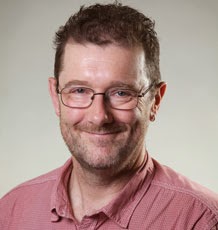This last blog of 2014 comes partly from cut and paste
lines taken from the 52 blogs I've posted during the year. I hope you don’t mind,
but sometimes I like to glance backwards and glimpse a memory or two of the
things that caught my attention. For example, In 2014, 30,000 people got on their bikes and
cycled the 54 miles London to Brighton British Heart Foundation (BHF) Bike
ride. Since 1980 650,000 riders have taken part raising some £40m for the BHF. One
of my PhD students also completed his PhD studies – he study explored the use of bikes and
the development of contemporary cycling. During 2014
Just in 2014 alone 19031 people were suspected of having Ebola,
12041 were confirmed as having the virus. Unfortunately, of this group, 7533 people died. During 5th August to the 11th November 88,246 ceramic poppies created by
artists Paul Cummins and Tom Piper were planted at the Tower of London marking
the 100 years that had passed since Britain became involved in the First World
War.
On the 17th July Malaysia Airlines Flight 17
(MH17) was shot down 50 km from the Russian – Ukraine border killing all 283
passengers and 15 crew on board. The passengers had no chance to say goodbye to
their loved ones, and in this same week I heard that my former wife, friend and
gardening mentor had died. We had separated 20 years previously and hadn't
maintained contact. But it still hurt not having the chance to say goodbye.
On the evening of the 14th February, ITV showed the first of 8
episodes of the now successful Student Nurses: Bedpans and Bandages. It was a
fantastic showcase for our student nurses, colleagues in the School and in
practice. It attracted audiences of between 4-5 million for each episode.
Someone who is still going strong however is Paddy.
Paddy is the oldest person in my Scottish village. She is a lady in her nighties
and a lady with a distinct tinkle in her eyes. In March we were both at a house
warming party where the average age was 60+. Paddy has lived in the village for
over 40 years. When she first arrived there was a staggering 21 doctors living
in the village and its surroundings. These days there are only 4 doctors (and
one professor – me).
No doctors (or professors) were need on the 7th May, when Harry, brother to Jack and grandchild number 9 made his appearance
into the world. He was a home delivery, a delivery facilitated by a midwife trained
in our School. And on the 16th of August in the quintessential
English village of Hornby, our youngest son Joseph married Louise – it was a
great day and for the first time in many, many years, all 5 children were
together in the same place. I made my stage debut with Ruby Wax on the 18th March, she was a great person to work with and we had many shared views of how
to improve our mental health and wellbeing.
What improves my mental health and wellbeing is being outside
and I love being unencumbered and free in my gardens. In June of last year, the
House in Scotland gardens featured as part of the Open Garden event. It
was a huge success. The weather was fantastic and over 180 people walked
through the gate (all having paid a £4 entrance fee, the proceeds of which went to charity). It was the garden to see
and was described as 'the most interesting, creative and fun' garden in the village.
Of course most gardens are ever changing places, and I love
walking through mine bare foot, stopping to look and think about the changes I
need to make, and consider those that nature is making for me. Whilst not quite
a metaphor for our School, I know that next year the world will bring the School challenges and
changes that we will need to stop and think about how we might best respond. Whatever you are doing to bring
in the New Year I wish you and yours well. Thanks for taking the time to read
these blogs and I hope you feel inclined to continue doing so in 2015.












































